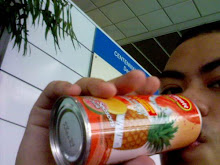 photo by Hermes Singson...
photo by Hermes Singson...Celebrated in areas with large populations of ethnic Chinese, Chinese New Year is considered a major holiday for the Chinese and has had a strong influence on the new year celebrations of its geographic neighbours, as well as cultures with whom the Chinese have had extensive interaction. These include Koreans, Mongolians, Nepalese, Bhutanese, Vietnamese, and formerly the Japanese before 1873. In Singapore, Indonesia, Malaysia, the Philippines, Thailand, and other countries with significant Chinese populations, Chinese New Year is also celebrated, largely by overseas Chinese, but it is not part of the traditional culture of these countries. In Canada, although Chinese New Year is not an official holiday, many ethnic Chinese hold large celebrations and Canada Post issues New Year's themed stamps in domestic and international rates.
- Good luck
- Opening windows and/or doors is considered to bring in the good luck of the new year.
- Switching on the lights for the night is considered good luck to 'scare away' ghosts and spirits of misfortune that may compromise the luck and fortune of the new year.
- Sweets are eaten to ensure the consumer a "sweet" year.
- It is important to have the house completely clean from top to bottom before New Year's
- Day for good luck in the coming year. (however, as explained below, cleaning the house after New Year's Day is frowned upon)
- Some believe that what happens on the first day of the new year reflects the rest of the year to come. Asians will often gamble at the beginning of the year, hoping to get luck and prosperity.
- Wearing a new pair of slippers that is bought before the new year, because it means to step on the people who gossip about you.
- The night before the new year, bathe yourself in pomelo leaves and some say that you will be healthy for the rest of the new year.
- Bad luck
- Buying a pair of shoes is considered bad luck amongst some Chinese. The word "shoes" is a homophone for the word for "rough" in Cantonese, or "evil" in Mandarin.
- Buying a pair of pants is considered bad luck. The word "pants"(kù) is a homophone for the word for "bitter"(kŭ) in Cantonese. (Although some perceive it to be positive, as the word 'pants'(fu) in Cantonese is also a homophone for the word for "wealth".)
- Washing your hair is also considered to be washing away one's own luck (although modern hygienic concerns take precedence over this tradition)
- Sweeping the floor is usually forbidden on the first day, as it will sweep away the good fortune and luck for the new year.
- Talking about death is inappropriate for the first few days of Chinese New Year, as it is considered inauspicious as well.
- Buying books is bad luck because the word for "book" is a homonym to the word "lose".
Avoid clothes in black and white, as black is a symbol of bad luck, and white is a traditional funeral
KUNG HEI FAT CHOI>>>>>>!










No comments:
Post a Comment